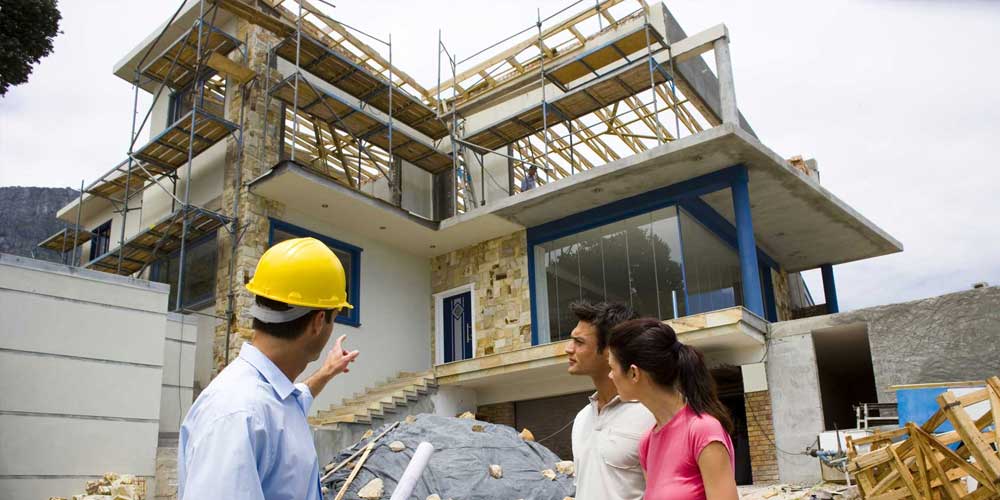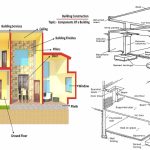Key Steps to High-Quality Home Construction
In the realm of residential development, home construction is more than simply building a structure; it’s an intricate process that requires careful planning, expert craftsmanship, and a commitment to quality. A high-quality home construction project demands attention to detail and a focus on long-term durability. In this guide, we’ll explore the essential steps and considerations to achieve exceptional results, including the importance of expert construction services in creating a solid foundation and an efficient, well-constructed home.
1. Planning and Design
The success of any home construction project starts with comprehensive planning and design. Working with architects, designers, and engineers allows you to create a blueprint that reflects your vision while adhering to practical considerations. At this stage, it’s essential to outline objectives, budgets, timelines, and specific requirements.
- Architectural Design: High-quality construction begins with a detailed architectural plan that takes into account the property’s landscape, natural lighting, airflow, and functional layout. These considerations affect not only the aesthetic but also the long-term energy efficiency and livability of the home.
- Structural Engineering: Structural design is critical to ensure your new home withstands the test of time. Collaborating with a professional engineering team ensures that the framework, foundation, and overall structure are sound and capable of withstanding environmental forces.
With well-thought-out planning, you lay the groundwork for a construction project that is both functional and built to last.
2. Selecting Quality Materials for Longevity
Choosing the right materials is key to ensuring durability in home construction. From the foundation to the roof, quality materials contribute to the longevity and resilience of your home.
- Foundation Materials: The foundation is the most critical part of a home’s structure, as it supports the entire building. Materials like reinforced concrete and steel provide the stability needed to withstand various weather conditions and shifts in soil.
- Framing and Structural Support: Wood, steel, and concrete are popular framing options, each with its benefits. Wood is versatile and cost-effective, steel offers exceptional strength, and concrete is fire-resistant and durable.
- Roofing Materials: The choice of roofing materials, such as asphalt shingles, metal, or tile, affects both the durability and energy efficiency of the home. In particular, new roof construction that incorporates advanced roofing materials can significantly reduce maintenance costs and enhance the building’s longevity.
Selecting high-quality materials tailored to the local climate and environmental conditions can improve the lifespan and energy efficiency of your home, reducing the need for frequent repairs.
3. Hiring Professional Construction Services
Engaging professional construction services is essential for the success of any home construction project. Skilled contractors bring expertise and attention to detail, ensuring each stage is completed to industry standards.
Benefits of Working with Professionals
- Project Management Expertise: Professional contractors have experience managing complex projects, ensuring that deadlines are met, budgets are adhered to, and quality standards are maintained.
- Technical Skills and Knowledge: Trained construction teams are well-versed in building codes, safety regulations, and advanced techniques that are critical for creating a safe and structurally sound home.
- Compliance with Local Building Codes: Experienced professionals ensure compliance with local building regulations, which helps avoid costly mistakes and potential legal issues.
Hiring a qualified team of construction experts ensures that your home is built with precision and care, protecting your investment and ensuring long-lasting quality.
4. Foundation and Framing
The foundation and framing stages are critical to high-quality home construction. These steps form the core structure that supports the entire building.
- Foundation Work: The foundation must be level, stable, and capable of handling the weight of the structure. Common foundation types include concrete slab, crawlspace, and basement, each suited for different soil types and climates. Skilled construction services ensure that foundation work meets engineering requirements and minimizes the risk of settling or shifting.
- Framing: The framing stage involves constructing the skeleton of the home using beams, trusses, and joists. This step sets the dimensions and layout of the rooms, walls, and roof. Proper framing techniques are essential for stability and ensure the home is ready for insulation, electrical, and plumbing installations.
A solid foundation and carefully constructed framing lay the groundwork for a durable home that can handle environmental pressures and provide a safe living environment for years to come.
5. Insulation and Energy Efficiency
A crucial aspect of modern home construction is energy efficiency, which begins with quality insulation. Proper insulation can make a significant difference in temperature control, noise reduction, and energy costs.
- Insulation Options: From spray foam to fiberglass batts, there are various insulation materials designed to provide optimal energy efficiency. The right insulation maintains indoor temperatures, reduces heating and cooling costs, and minimizes environmental impact.
- Energy-Efficient Windows and Doors: Energy-efficient windows and doors prevent air leakage, reduce heat transfer, and improve overall comfort. These materials can contribute to substantial cost savings in energy expenses over the life of the home.
By focusing on insulation and other energy-saving elements, homeowners can enjoy a more comfortable living environment while reducing their ecological footprint.
6. Final Finishes and Quality Control
The finishing phase involves adding the final details that make a house feel like home, such as flooring, cabinetry, fixtures, and paint. During this stage, meticulous attention to detail is crucial to ensure a flawless finish.
Quality Control in Final Stages:
- Detailed Inspections: Comprehensive inspections at each stage of the construction process help catch any potential issues early. Quality control measures ensure that all aspects of the build meet the desired standards.
- Warranty and Service Agreements: Many construction services offer warranties for their work, giving homeowners peace of mind. A reputable contractor will also provide clear communication regarding post-construction service agreements, ensuring long-term support if needed.
This final step in the construction process not only enhances aesthetics but ensures that all systems and components function as intended, contributing to the overall quality and longevity of the home.
Conclusion
High-quality home construction is a combination of careful planning, quality materials, professional services, and rigorous attention to detail. From the initial design phase to the final quality check, each step in the process contributes to a safe, comfortable, and durable home. By working with experienced construction professionals and investing in the right materials, homeowners can create a lasting structure that meets their needs and withstands the test of time.
For those looking to build a home that reflects both modern technology and timeless quality, focusing on these construction essentials is the key to long-term satisfaction and value.




